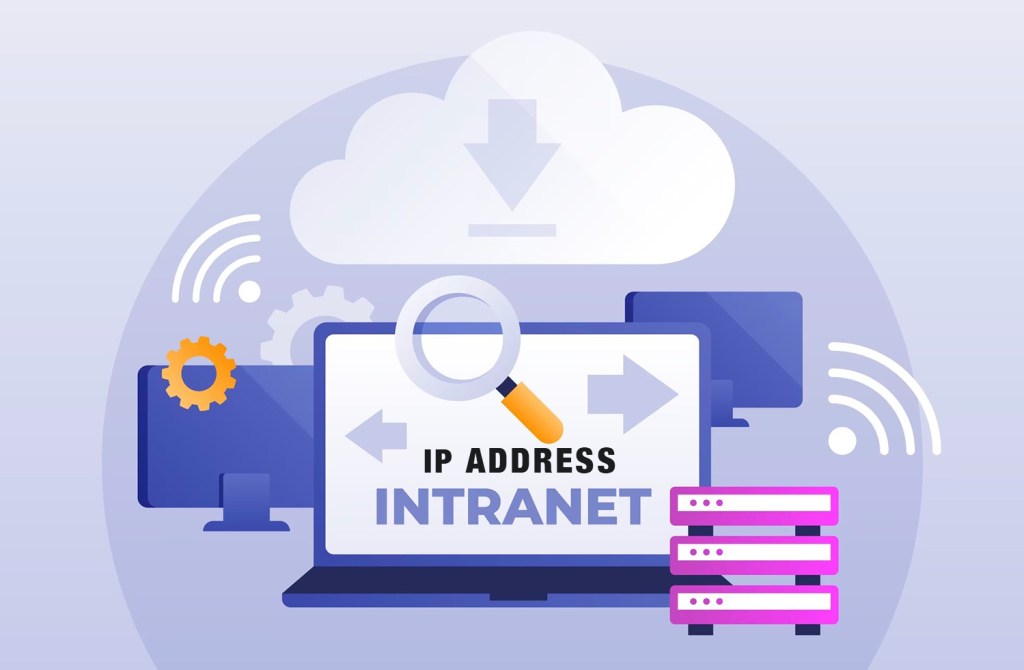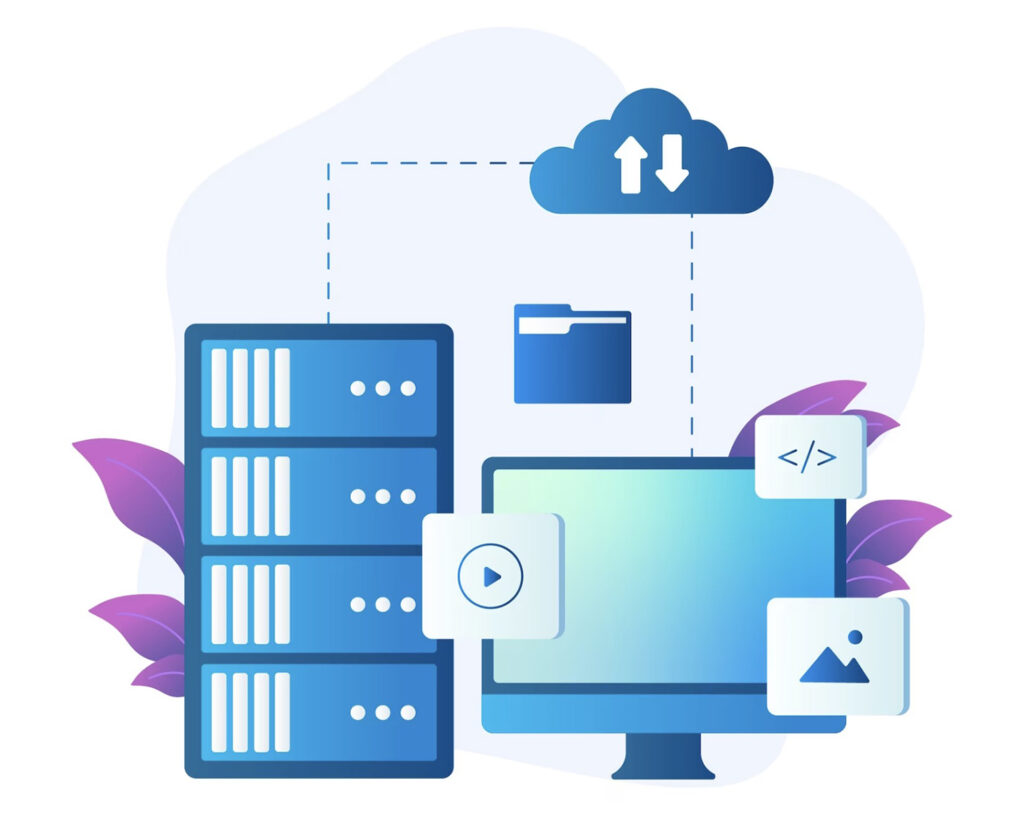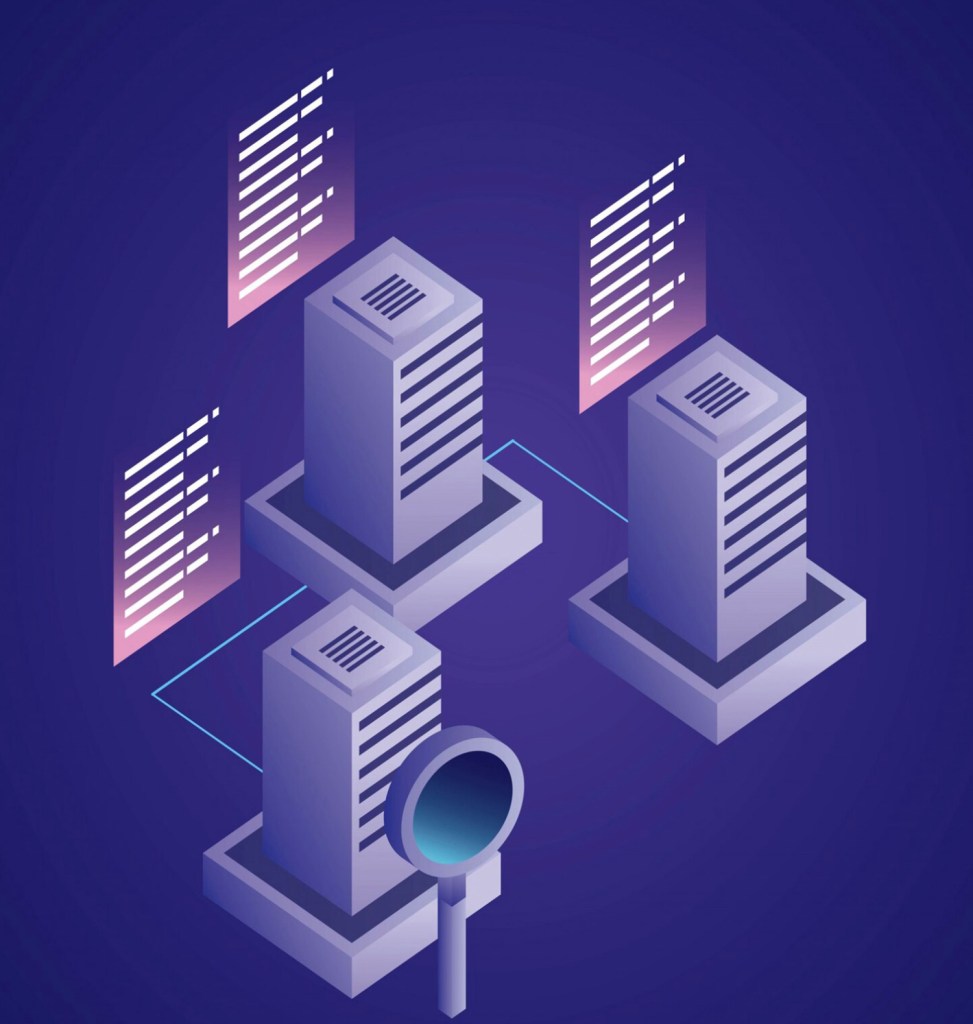Updated: Jul 16, 2023 By: Dessign Team

What is an IP Address?
As we delve into the world of internet networking, one term you are sure to encounter time and time again is ‘IP address’. But what is an IP address, exactly?
In this piece, we’ll explore this essential networking concept. We’ll start by defining and explaining IP addresses, covering their structure and purpose in depth. Then, we’ll examine IP address allocations by IANA and gain a better understanding of how these addresses are distributed across the internet. Join me on this journey of discovery into the building blocks of modern internet networking.
Definition and Explanation

IP addresses act as an identifier for any device that connects to the internet. An IP address can be described as a numerical label assigned to each device connected to a computer network.
Each IP address consists of four sets of numbers separated by periods (for example, 192.168.1.1). These numbers are used to identify devices on a network and allow them to communicate with one another.
One unique feature of IP addresses is their allocation process by Internet Assigned Numbers Authority (IANA). IANA distributes global IP address blocks to regional Internet registries, which in turn assign IP addresses to organizations or individuals. With VPN you can hide your ip address from other.
In summary, an IP address is a unique set of numerical identifiers used to connect devices on networks through the internet. It is allocated by IANA and plays a crucial role in facilitating communication through networks worldwide.
Breaking down an IP address is like solving a puzzle, except instead of a pretty picture, you get internet access.
IP Address Structure

IP Addresses are unique identifiers assigned to devices connected to a computer network. The IP Address structure is divided into two parts: the network number and the host number. The network number identifies the device's place on the network, while the host number differentiates between devices on the same network.
The IP Address is divided into four sets of numbers separated by periods, with each set ranging from 0 to 255. The first set denotes the highest-level network or class of address, and it is followed by two more sets that denote successively smaller subdivisions of that class. The fourth set represents the specific device ID.
A unique feature of IP Addresses is their hierarchical allocation system managed by Internet Assigned Numbers Authority (IANA). IANA assigns IP Addresses to Regional Internet Registries (RIR), who further allocate these addresses to Local Internet Registries (LIR) within their respective geographical regions.
It is essential to understand the IP Address structure as it enables efficient communication between devices on a network. Incorrectly configured addresses can result in failed connections, slow access, and security vulnerabilities.
To avoid these consequences, it is crucial to maintain up-to-date information regarding IP Address structures and adhere to best practices when allocating them for devices connected to a network.
IANA: The ultimate gatekeeper of IP addresses, keeping the world wide web in check one allocation at a time.
Allocations by IANA
The distribution of IP addresses is handled by IANA, a globally recognized nonprofit organization. IANA allocates blocks of IP addresses to Regional Internet Registries (RIRs) based on their requirements. In turn, RIRs distribute these blocks of IP addresses to Internet Service Providers (ISPs) or other organizations according to their needs.
| Allocations by IANA |
|---|
| Blocks of IP addresses are given to Regional Internet Registries (RIRs) |
| These IPs are then distributed to ISPs or other organizations as per their needs |
It's important to note that the allocation process involves careful planning and management to prevent address exhaustion. As demand continues to increase, new techniques such as IPv6 have been implemented for sustainable future growth.
Additionally, IANA also manages the assignment and registration of domain names and other unique identifiers on the internet.
According to ICANN (Internet Corporation for Assigned Names and Numbers), “IANA operates under contract with the U.S. Government and through a formal relationship with VeriSign, serves as both administrator and instrument of change in its coordination role for the Internet’s naming system.“
Connecting to the internet is like hitchhiking – you need an ISP to give you a ride and an IP address to tell everyone where you're going.
How do IP addresses work?

As a digital native, I’ve always been curious about how the internet works. Specifically, I’ve often wondered how my devices connect to the internet and how the vast web of information is transported across the globe.
In this part of the article, we’ll explore the inner workings of IP addresses and how they facilitate our internet usage. We’ll look at the different ways we connect to the internet and how Internet Service Providers (ISPs) play a crucial role in this process.
Additionally, we’ll discuss the differences between dynamic and static IP addresses and their respective benefits. Get ready to dive into the exciting world of internet technology!
Connecting to the Internet

To establish a connection with the internet, one needs an IP address. An IP address is a unique numerical code assigned to each device connected to the internet. Connecting to the internet requires a device with an active internet connection such as a modem or router which is physically connected to the device.
Once connected, the device sends out a request for information to the Internet Service Provider (ISP) which acts as a gateway between the user and the internet. The ISP then assigns an IP address from its pool of available addresses which allows for communication between the device and other devices on the internet.
It should be noted that some ISPs offer dynamic IP addresses where they assign a new IP address for each session while others offer static IP addresses that remain consistent every time you connect to the internet.
To ensure successful connection with the internet, it is imperative that all devices have valid and unique IP addresses. Without proper IP addressing protocol, there can be conflicts and unnecessary data loss leading possibly to temporary or permanent disconnection from accessing websites or apps.
The ISP: because without them, your IP address would be as useless as a car without gas.
Role of ISP
ISPs play a critical role in the functioning of the internet by providing customers with access to the web through their networks. ISPs operate as intermediaries and facilitate access to websites, online services, and other connected devices. They are responsible for routing data traffic between different devices on the internet and ensuring that information is delivered quickly and securely.
The role of ISPs includes providing customers with IP addresses through which they can connect to the internet. ISPs manage the allocation of IP addresses, including both public and private addresses, which are used by customers to access various online services.
ISPs also provide support for customers who experience technical difficulties while accessing the internet. This support may include troubleshooting connectivity issues or helping customers configure their network settings to ensure proper bandwidth allocation.
It is crucial that ISPs maintain network security protocols to prevent malicious actors from exploiting vulnerabilities in their infrastructure that could compromise users' personal data. ISPs conduct regular monitoring and security audits to maintain network reliability and security.
Without ISP services, accessing the internet would be impossible. Therefore, it is essential for individuals and businesses alike to choose an ISP that has a good reputation for quality service delivery and security measures in place during online activity.
Dynamic IPs are like a box of chocolates, you never know what you're gonna get, while static IPs are more like a trusty old pair of socks.
Dynamic and Static IP Addresses
IP addresses can be categorized into two types – dynamic and static. Dynamic IP addresses are assigned by an Internet Service Provider (ISP) and change each time a device connects to the internet. Static IP addresses are assigned manually and remain the same until they are manually changed.
Dynamic IP addresses are often used for consumers, as it allows ISPs to conserve IP address space. On the other hand, static IP addresses are useful for businesses that require a consistent and reliable connection to the internet.
It's important to note that static IP addresses may come at a higher cost due to their fixed nature. Additionally, dynamic IP addresses can cause issues with certain applications that require a consistent network connection.
To save costs, some ISPs assign dynamic IPs but allow users to pay extra for a static one. It is always best to consult with your ISP to determine which type of IP address works best for your needs.
From private to public, know your IPs like you know your ABCs.
Types of IP Addresses

As an internet user, we probably come across the term IP address frequently. It is a unique identifier assigned to every device connected to the internet. In this discussion, I will delve into the different types of IP addresses. The two types of IP addresses are consumer IP addresses and public IP addresses. Each of these types is unique and has its own specific use cases. Let's explore the differences between these two types and how they affect your internet usage.
Consumer IP Addresses
In computer networking, IP addresses serve as unique identifiers assigned to each device connected to the internet. One type of IP address is known as Consumer IP Addresses, which are used by individual users at home or small businesses. These addresses can be further subcategorized as private and public.
Private Consumer IP Addresses are reserved for internal use within a network and cannot be accessed from the internet directly. They are commonly used for devices such as routers, printers or computers that communicate with other devices within the same network.
Public Consumer IP Addresses, on the other hand, are globally accessible over the internet and allow incoming traffic to reach devices using them. Internet Service Providers (ISPs) typically assign Public IPs to subscribers who require them.
Public Consumer IP Addresses can be further classified into Dynamic and Static IPs. ISPs usually allocate dynamic IP addresses to low-cost plans where subscribers get different public IPs with each session. Static Consumer IPs, however, remain unchanged over time and give subscribers more control over managing their own networking environments.
It's interesting to note that consumer IP addresses are integral not just for individuals but also businesses in today's digital age.
Keep your internet activities private with your own personal IP address.
Private IP Addresses
Private IP addresses are designated for use within a private network and are not routable on the internet. They provide internal addressing within an organization without the need for unique IP addresses assigned by an Internet Service Provider (ISP). These addresses can be used on multiple networks as long as they are not connected to the internet.
Private IP addresses come in two classes: Class A and Class B, with each class consisting of several ranges of IP address numbers. Unlike public IP addresses, which must be unique on the internet, private IP addresses can be used by many different devices simultaneously.
For security reasons, Private IP Addresses are used within Local Area Networks or WANs. This is because they cannot be detected or accepted by routers outside the local network to which they belong.
It was first formally defined in an effort to promote early adoption of Internet Protocol Suite and included a limited set of numbers to support home-based connecting to the Internet through dial-up services.
Why share your IP address with strangers when you can have your own public one?
Public IP Addresses
Public IP addresses are unique identifiers assigned to devices connected to the internet. These addresses are publicly available and can be accessed by anyone on the internet. They are allocated by IANA, and ISPs are responsible for assigning them to their clients. Public IP addresses can be dynamic or static, with dynamic being more common as they change periodically.
ISPs assign public IP addresses to their clients based on many factors such as location, type of service, and availability of IP addresses in the region. Public IP addresses are used by businesses and individuals to host websites, run servers, and access the internet more securely.
It is important for users to secure their public IP address by using a firewall to prevent unauthorized access. Also, users need to configure their routers correctly to avoid exposing any services unintentionally running on their network. Additionally, users should periodically scan their networks for vulnerabilities that could expose their public IP address.
Proper configuration of public IP addresses helps avoid security breaches and keeps networks safe from cyberattacks. By taking these steps towards protecting your public IP address, you will reduce potential threats and improve network performance.
Public IP addresses can change like the weather – dynamic ones, anyway.
Dynamic IP Addresses
Dynamic IP addresses are temporary IP addresses provided by Internet Service Providers (ISPs) to devices connected to the internet. These IP addresses change frequently, and when a device reconnects to the internet, it is assigned a new dynamic IP address. This is different from static IP addresses which remain fixed.
Dynamic IP addresses are useful for ISPs as they can allocate a limited number of IPs to multiple devices and reuse them when not in use, reducing costs. However, they can cause issues for users who require consistent connectivity like gamers or online streamers.
One way to bypass this issue is by using a Dynamic DNS (DDNS) service that maps a domain name to your dynamic IP address. This ensures uninterrupted services even if the dynamic IP address assigned changes frequently.
In summary, dynamic IP addresses are temporary IPs that vary each time a device connects to the internet. To ensure uninterrupted services, consider using DDNS services that map a domain name to your dynamic IP address.
I may not know your IP address, but I know I'm watching you read this article.
Static IP Addresses
One unique detail about Static IP Addresses is that they allow for consistent connectivity and reliable access to devices from anywhere in the world. Unlike Dynamic IP Addresses that change regularly and can cause disruptions in services like online gaming or remote work, Static IP Addresses provide consistency and stability over time.
According to the Internet Assigned Numbers Authority (IANA), static IP addresses are allocated based on regional needs and usage requirements. These allocations are usually done within ranges specifically reserved for this purpose, ensuring that there is no overlap or shortage of static IPs available for use.
FAQs about What Is An IP Address
What is an IP address and how is it defined?
An IP address is a unique identifier for a device on the internet or local network, used for communication between devices. It is defined as a string of numbers separated by periods and is mathematically produced and allocated by the Internet Assigned Numbers Authority (IANA), a division of the non-profit organization ICANN.
How do IP addresses work and why are they important?
IP addresses work by allowing devices on a network to communicate with each other using a set of guidelines for passing information, similar to a language. They are important because they provide a way for the internet to differentiate between different computers, routers, and websites, and allow for communication between them.
What are the different types of IP addresses?
There are different categories of IP addresses, such as consumer IP addresses, which include private and public IP addresses. Public IP addresses come in two forms: dynamic and static, with dynamic IP addresses changing automatically and regularly, while static IP addresses remain fixed.
What is the network location of private and public IP addresses?
Private IP addresses are used inside a network, while public IP addresses are used outside a network. Your private IP address is used to identify each device that connects to your internet network, while your public IP address is the primary address associated with your whole network.
How does the growing internet of things affect IP addresses?
The growing internet of things means that the number of private IP addresses is probably increasing, as more devices connect to your internet network. Your router generates private IP addresses for each device, which act as unique identifiers on the network.
What are the security benefits of dynamic IP addresses?
Dynamic IP addresses change automatically and regularly, which makes it harder for criminals to hack into your network interface. It also generates cost savings for your Internet Service Provider (ISP), as they don't need to carry out specific actions to re-establish a customer's IP address if they move home or switch devices.








